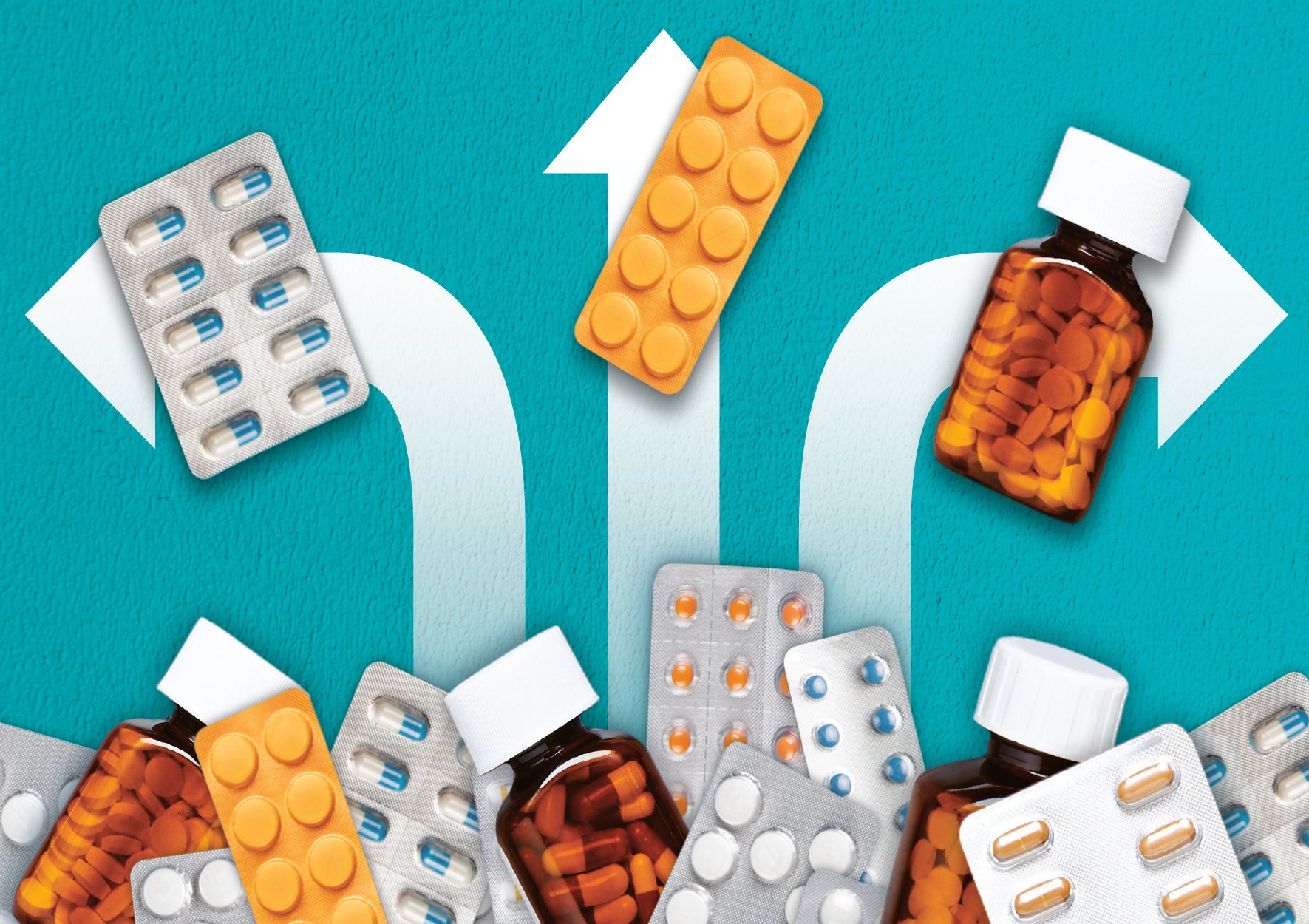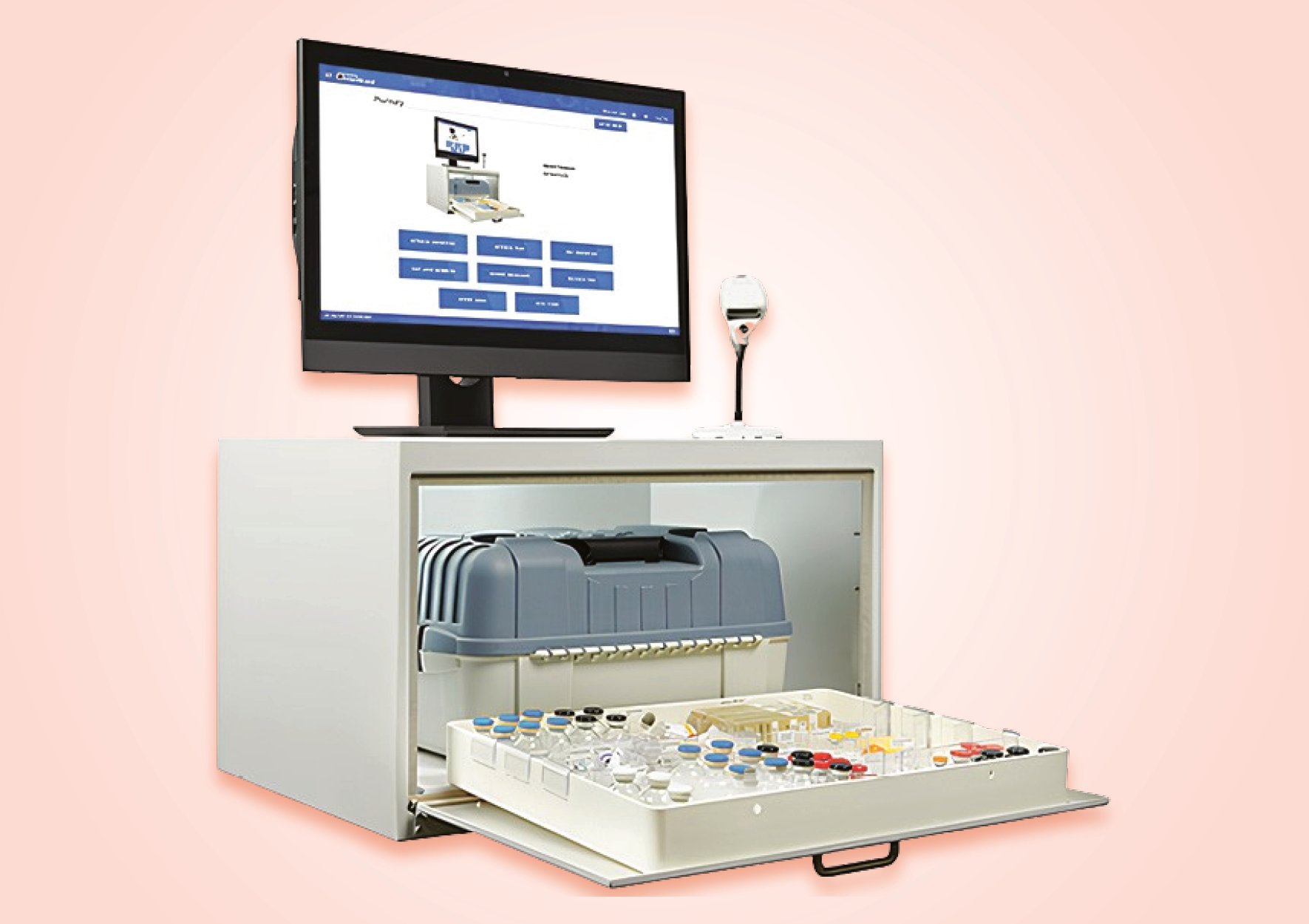- Show Menu
- Contact Us
- FAQs
- Reader Service
- Survey Data
- Survey Winners
- Testimonials
- Upcoming Events
- Webinars
- White Papers
Product Spotlight: Biotest Diagnostics' RCS Plus Cetrifugal Air Sampler
By Hema Patel, RPh
THE IMPLEMENTATION OF A SOUND ENVIRONMENTAL MONITORING program is a key component of USP Chapter <797> compliance. As part of our efforts to meet and exceed the guidelines set forth in <797>, the University of Illinois Medical Center uses the RCS Plus Centrifugal Air Sampler from Biotest Diagnostics to detect adverse trends in the microbial populations of our cleanrooms and as an aid to rectifying such occurrences.
The University of Illinois Medical Center operates one central pharmacy and three satellite locations. Once a month, one of our pharmacy technicians spends the day conducting the required environmental monitoring activities for lowto medium-risk compounding areas. She uses Biotest’s HYCON contact slides to sample the hood surfaces, countertops, and floors, and the RCS Plus to sample the air in our controlled environments. The portability of the RCS Plus is an advantage in our multi-site system. The sampler weighs just over 3 pounds and is operated by a rechargeable 7.2V battery pack.
Before operating the sampler, the technician wipes the components with alcohol, inserts the agar media strip, and covers it with a protection cap. At the push of a button, the RCS Plus impacts airborne microorganisms onto the agar media strip by centrifugal force at a flow rate of 50 L per minute. The sampler maintains a unidirectional airflow to minimize turbulence, allowing us to take samples in our laminar flow hoods. The sample volume is programmable and we typi-
cally use a pre-programmed volume of 280 mL, which is a great time-saver. Should the sample-collection cycle stop prematurely due to low battery power or another technical malfunction, an audible signal and a visual alert message on the integrated display alerts our technician, and the sample is retaken.
Once the complete sample is taken, the technician incubates the media for 72 hours. At the conclusion of the incubation period, we analyze any colonies found on the culture and document the findings per <797> guidelines. The sampler has helped us to identify a few instances in which our controlled environment’s microbial bioburden was out of limits. In one instance, a sample taken in one of our hoods revealed that the hood had not been cleaned per our protocols. Once we cleaned the hood, the samples returned colony growth within our normal limits. On another occasion, a sample that we took near our cleanroom sink revealed outof-limit colony growth. Our investigation uncovered an easyto-remedy problem: The sink was clogged. With both of these occurrences, the RCS Plus allowed us to quickly identify and rectify out-of-limit situations.
The sampler’s housing is made of polycarbonate and stands up to cleaning with 70% ethanol, and its anodizedaluminum rotor and stainless-steel protection cap are both autoclavable. To clean the sampler, the technician soaks it in 70% alcohol and then wipes it with particle-free wipes and lets it air dry before we use it again. All in all, the RCS Plus is easy to use and intuitive to maintain. We have found the RCS Plus to be a valuable component of our plan to maintain a <797>-compliant cleanroom and achieve our patient safety goals.
For 10 years, Hema Patel, RPh, has served as the central operational pharmacy manager for the pharmacy department at the University of Illinois Medical Center in Chicago. Patel graduated from L.M. College of Pharmacy in India, and emigrated to America in 1979. She joined the University of Illinois Medical Center in 1985, after working at Alexian Brothers Hospital in Elk Grove, Illinois, for three years.
Like what you've read? Please log in or create a free account to enjoy more of what www.pppmag.com has to offer.








